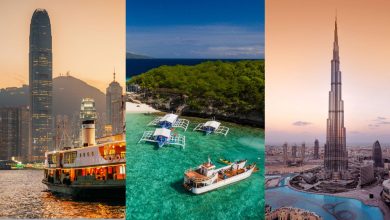The world’s rarest duck, the Madagascar pochard, has taken a small step away from the threat of extinction, thanks to a conservation project that has received support from the Mohamed bin Zayed Species Conservation Fund.
An announcement from the UK-based Wildfowl and Wetlands Trust, WWT, and the Jersey-based Durrell Wildlife Conservation Trust , who are together managing the conservation project, announced that 12 ducklings have been sighted at the remote Lake Sofia, in northern Madagascar.
The Mohamed bin Zayed Fund provided a major grant to the project in November 2018.
The species was thought to be extinct until 2006, when a small number of ducks were found on another small remote lake. Some were taken into captivity in 2009, to allow for a captive breeding programme to be developed, while a suitable site for future release was identified. Lake Sofia was selected, with WWT, Durrell, Asity Madagascar and the Aga Khan Foundation working in partnership with Madagascar’s Ministry of the Environment and local communities to plan for a reintroduction progamme. The lake was also designated as a protected site under the international Ramsar agreement on preserving wetlands.

21 young captive-bred pochards were then released in December 2018.
The recent discovery of two broods of ducklings, of eight and four, amazed the scientists, since diving ducks like pochards normally breed for the first time at two years old.
“We are delighted to hear the news of this important step forward in securing the future of the Madagascar pochard,” the Managing Director of the Mohamed bin Zayed Species Conservation Fund, Razan Al Mubarak, told the Emirates News Agency, WAM. “Our grant programme is focused on conservation projects devoted to the saving of individual species. With the Madagascar pochard being the rarest duck in the world, it was an obvious choice for us to support this project. ”
Commenting on the discovery of the ducklings, Durrell’s Project Manager, Dr. Glyn Young, said, “This is a remarkable step in this project to save and restore the Madagascar pochard. When we started in 1989 and found no hope for the species’ survival until 2006, things looked very bleak. But we never gave up and I am so proud on behalf of our partnership and for all of our Malagasy colleagues that this pivotal milestone offers hope that the pochard may one day be widespread across Madagascar’s wetlands.”

WWT’s Project Manager, Peter Cranswick, added, “Reintroduced animals normally take a while to settle into their new site, and first breeding attempts are often unsuccessful, so this is a wholly unexpected but very welcome development. It took several years for the local communities around the lake to give this project to restore the lake and to give the reintroduction of pochards their endorsement. Now the ducks have given it their endorsement too.”
He added, “We celebrate each time we cross a threshold in this project, and the first breeding in the wild is very significant. But it only reminds us that the next huge task has begun, and it will take several years of learning from these birds before we can be confident that we understand their needs fully and how to restore the lake. There is a long way to go – and there will be many setbacks along the way – but this is a major milestone achieved two or three years ahead of schedule!”
A monitoring team, who have been based at the lake for the last twelve months to carefully track the pochards that were released in December 2018, will now continue to observe the ducklings. The young face many challenges, not least to find food in a lake that is in poor condition. Already, they have been observed taking artificial food provided on feeding platforms by project staff. With the cyclone season underway, it is crucial that the birds grow and develop their first full feathers that will provide waterproofing and warmth as the weather deteriorates over the coming months.




